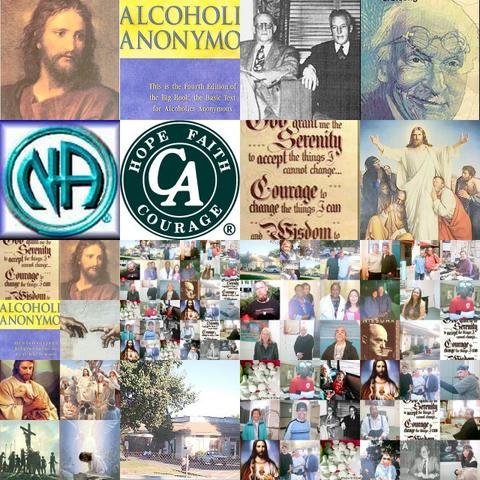Love God, Stay Straight & Help Others!
The term dual diagnosis is often used interchangeably with the terms co-morbidity, co-occurring illnesses, concurrent disorders, comorbid disorders, co-occurring disorder, dual disorder, and, double trouble. Professional literature has used a confusing array of terms and acronyms to describe co-occurring disorders or a dual diagnosis.
Individuals who experience a dual diagnosis often face a wide range of psychosocial issues and may experience multiple interacting illnesses (more than two). The term "co-occurring disorders" is becoming a common term used to refer to dual diagnosis, or co-occurring substance abuse disorders and psychiatric or emotional illnesses.
Dual Recovery Anonymous defines "dual diagnosis" as meaning that an individual has two separate but very interrelated diagnoses:
* A psychiatric diagnosis
* A substance abuse diagnosis which may include both drugs and
alcohol
A dual diagnosis occurs when an individual is affected by both chemical dependency and an emotional or psychiatric illness. Both illnesses may affect an individual physically, psychologically, socially, and spiritually. Each illness has symptoms that interfere with a person’s ability to function effectively and relate to themselves and others. Not only is the individual affected by two separate illnesses, both illnesses interact with one another. The illnesses may exacerbate each other and each disorder predisposes to relapse in the other disease. At times the symptoms can overlap and even mask each other making diagnosis and treatment more difficult.
A person may sincerely try to recover from one illness and not acknowledge the other. As a person neglects his or her mental illness, that illness may recur. This recurrence may, in turn, lead a person to feel the need to "self-medicate" through drug use. Over time, the lack of progress toward recovery on both fronts may trigger feelings of failure and alienation. Perhaps the greatest tragedy is the damage that occurs to the individual’s self-esteem.
There is no single type of dual diagnosis. The reason is, that there are numerous forms of psychiatric illness. There are also many patterns of alcohol or drug abuse. As a result, a variety of different forms of dual or multiple disorders are possible.
A variety of problems are possible as a result of a dual diagnosis. For example:
* Psychiatric symptoms may be covered up or masked by alcohol or
drug use.
* Alcohol or drug use or the withdrawal from alcohol or other drugs
can mimic or give the appearance of some psychiatric illness.
* Untreated chemical dependency can contribute to a reoccurrence
of psychiatric symptoms.
* Untreated psychiatric illness can contribute to an alcohol or drug
relapse.
Other problems and consequences that are associated with dual disorder include:
> Family problems or problems in intimate relationships.
> Isolation and social withdrawal.
> Financial problems.
> Employment or school problems.
> High risk behavior while driving.
> Multiple admission for chemical dependency services due to
relapse.
> Multiple admissions for psychiatric care.
> Increased emergency room admissions.
> Increased need for health care services.
> Legal problems and possible incarceration.
> Homelessness.
The term "dual diagnosis" can have different connotations and definitions depending upon who is using it. Professionals and service providers may have a narrower definition than that used by Dual Recovery Anonymous. For our purpose in dual recovery it does not matter how long or to what degree we have been affected by either of our no-fault illnesses. Membership in the Fellowship of Dual Recovery Anonymous does not require professional referral and is not dependent upon the extent of social services and professional care a person has utilized. Our Second Tradition states that: "D.R.A. has two requirements for membership; a desire to stop using alcohol and other intoxicating drugs, and a desire to manage our emotional or psychiatric illness in a healthy and constructive way."
An individual is in dual recovery when they are actively following a program that focuses on their recovery needs for both their chemical dependency and their psychiatric illness.
+++++++++++++++++++++++++++++++++++++++++++++
http://draonline.org/dual_diagnosis.html
Friday, February 24, 2006
Subscribe to:
Post Comments (Atom)

No comments:
Post a Comment
Please give feedback with respect!